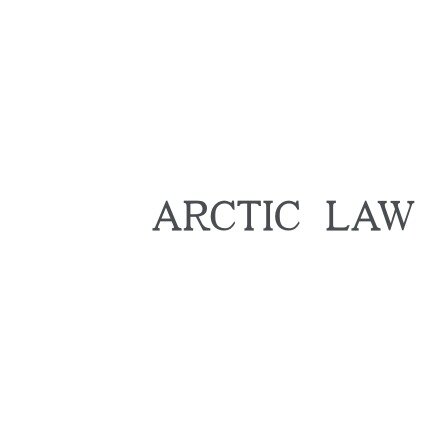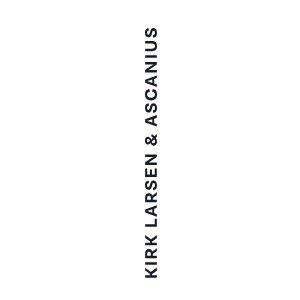Best Renewable & Alternative Energy Lawyers in Nuuk
Share your needs with us, get contacted by law firms.
Free. Takes 2 min.
List of the best lawyers in Nuuk, Greenland
About Renewable & Alternative Energy Law in Nuuk, Greenland
Nuuk, the capital of Greenland, is at the forefront of the territory’s increasing shift towards renewable and alternative energy sources. Given Greenland’s vast natural resources and its commitment to environmental sustainability, renewable energy plays a central role in both public discourse and government policy. The primary sources of renewable energy in Nuuk are hydropower, wind energy, and to a lesser extent, solar power. Legal frameworks in this sector govern the development, operation, and regulation of energy projects to ensure sustainability, local participation, and alignment with Greenland’s long-term environmental goals.
Why You May Need a Lawyer
Legal assistance can be crucial for those involved in renewable and alternative energy projects in Nuuk. Common situations where a lawyer’s expertise may help include:
- Negotiating and drafting contracts for developing, operating, or investing in renewable energy projects
- Guidance on permitting and licensing requirements for new energy installations
- Resolving disputes between project partners, suppliers, or with landowners
- Compliance with environmental protection regulations and impact assessments
- Securing government grants, incentives, or navigating state procurement processes
- Advising on foreign ownership and investment restrictions within Greenland
- Assisting with local community involvement and benefit-sharing mechanisms
- Advising companies on tax obligations, intellectual property, and technology transfer related to renewables
Legal guidance ensures that projects run smoothly, comply with all local regulations, and address any risk factors from the outset.
Local Laws Overview
Greenland is an autonomous territory within the Kingdom of Denmark, with its own government and legislative authority over most domestic issues, including energy. Key aspects of the legal context in Nuuk for renewable and alternative energy include:
- The Government of Greenland regulates the exploitation of natural resources through the Mineral Resources Act, which also governs licenses for hydropower and other renewable sources
- Environmental Impact Assessments (EIA) are required before commencing large-scale energy projects, ensuring sustainable development and consultation with local populations
- Municipal regulations may apply for smaller-scale or privately owned renewable installations in and around Nuuk
- Foreign investment is subject to regulatory approval and must adhere to Greenland’s specific requirements for ownership and operational conduct
- Public participation and benefit-sharing with local communities are appreciated and sometimes required by law or policy, reflecting Greenland’s emphasis on local engagement
The evolving legal environment means project developers and investors must stay updated on new laws and regulations.
Frequently Asked Questions
What are the most common renewable energy sources in Nuuk?
Hydropower is the most advanced and widely used renewable energy source in Nuuk, with wind and solar being explored as supplementary solutions.
Is it possible for private individuals or companies to develop renewable energy projects in Nuuk?
Yes, but all projects must comply with relevant licensing, environmental assessments, and zoning requirements set by local and national authorities.
Do foreign companies face restrictions when investing in renewable energy in Nuuk?
Foreign investment is generally welcomed, but requires adherence to regulatory approval processes set by Greenlandic authorities.
How does the permitting process work for new renewable energy projects?
Permits are generally issued by the Government of Greenland, involving applications, environmental assessments, and sometimes public consultations.
Are there incentives or subsidies for renewable energy projects in Nuuk?
Various incentives may be available, including grants or favorable loan conditions for locally beneficial or innovative renewable energy projects, subject to government programs in place at the time.
What environmental regulations apply to renewable energy development?
All sizable renewable energy projects require Environmental Impact Assessments and must comply with environmental protection laws to safeguard landscapes, wildlife, and community interests.
How are disputes in renewable energy projects typically resolved?
Disputes can be settled through negotiation, mediation, or litigation, depending on the contract terms and the nature of the disagreement. Legal advice is recommended early in the process.
What role do local communities play in renewable energy projects?
Local communities often participate through consultations and may benefit directly through employment or revenue-sharing. Some laws and regulations require active engagement and approvals from affected communities.
Are micro or small-scale renewable installations regulated?
Yes, even small-scale installations such as home solar panels are subject to local building codes, safety regulations, and sometimes require municipal approval.
Can existing energy contracts be modified if regulations change?
Contracts may include clauses for regulatory changes, but altering them usually requires negotiation with all parties and should comply with Greenlandic contract law.
Additional Resources
If you need more information, the following resources can be helpful:
- Government of Greenland - Department of Nature and Environment (publish updates on energy and environment policy)
- Nuuk Kommune (municipal office for zoning, permits, and local regulations)
- Kalaallit Nunaanni Energy Association (industry association for energy professionals in Greenland)
- Kalaallit Nunaanni Business Association (business advocacy including energy sector guidance)
- Local law firms with practice in energy law and environmental compliance
- Various non-governmental organizations focusing on sustainable energy solutions and indigenous rights in Greenland
Next Steps
If you are considering involvement in renewable or alternative energy projects in Nuuk or face legal matters connected to energy development, follow these steps:
- Clarify your goals and gather all relevant project or transaction documents
- Consult with a local lawyer who specializes in energy, environmental, or business law in Greenland
- Assess regulatory and permitting requirements before making investments or signing contracts
- Engage with local authorities and communities early, especially for larger-scale projects
- Review any available government incentives and support programs for renewable energy
- Ensure contracts and agreements are reviewed for compliance with all relevant Greenlandic laws
- Stay informed about changes to local policies and regulations affecting the energy sector
A qualified legal professional can provide the necessary clarity and support to help your renewable energy venture in Nuuk proceed smoothly and within the scope of all applicable laws.
Lawzana helps you find the best lawyers and law firms in Nuuk through a curated and pre-screened list of qualified legal professionals. Our platform offers rankings and detailed profiles of attorneys and law firms, allowing you to compare based on practice areas, including Renewable & Alternative Energy, experience, and client feedback.
Each profile includes a description of the firm's areas of practice, client reviews, team members and partners, year of establishment, spoken languages, office locations, contact information, social media presence, and any published articles or resources. Most firms on our platform speak English and are experienced in both local and international legal matters.
Get a quote from top-rated law firms in Nuuk, Greenland — quickly, securely, and without unnecessary hassle.
Disclaimer:
The information provided on this page is for general informational purposes only and does not constitute legal advice. While we strive to ensure the accuracy and relevance of the content, legal information may change over time, and interpretations of the law can vary. You should always consult with a qualified legal professional for advice specific to your situation.
We disclaim all liability for actions taken or not taken based on the content of this page. If you believe any information is incorrect or outdated, please contact us, and we will review and update it where appropriate.











